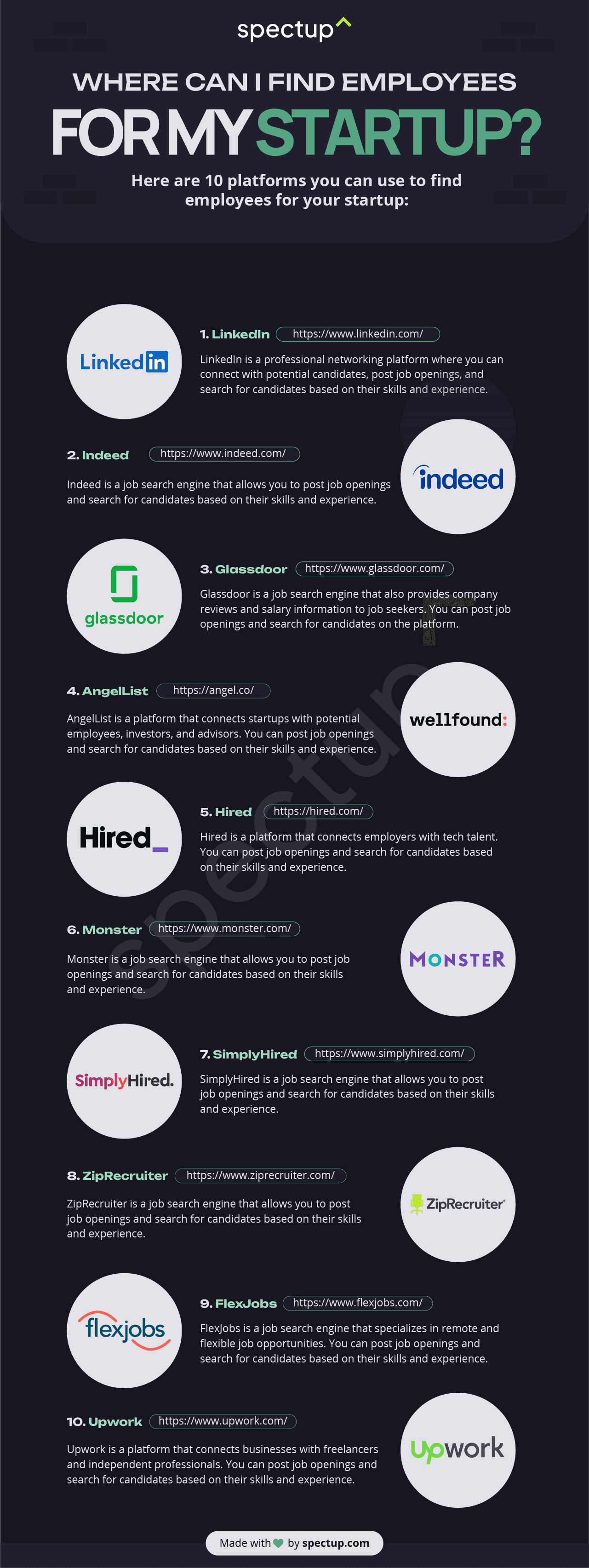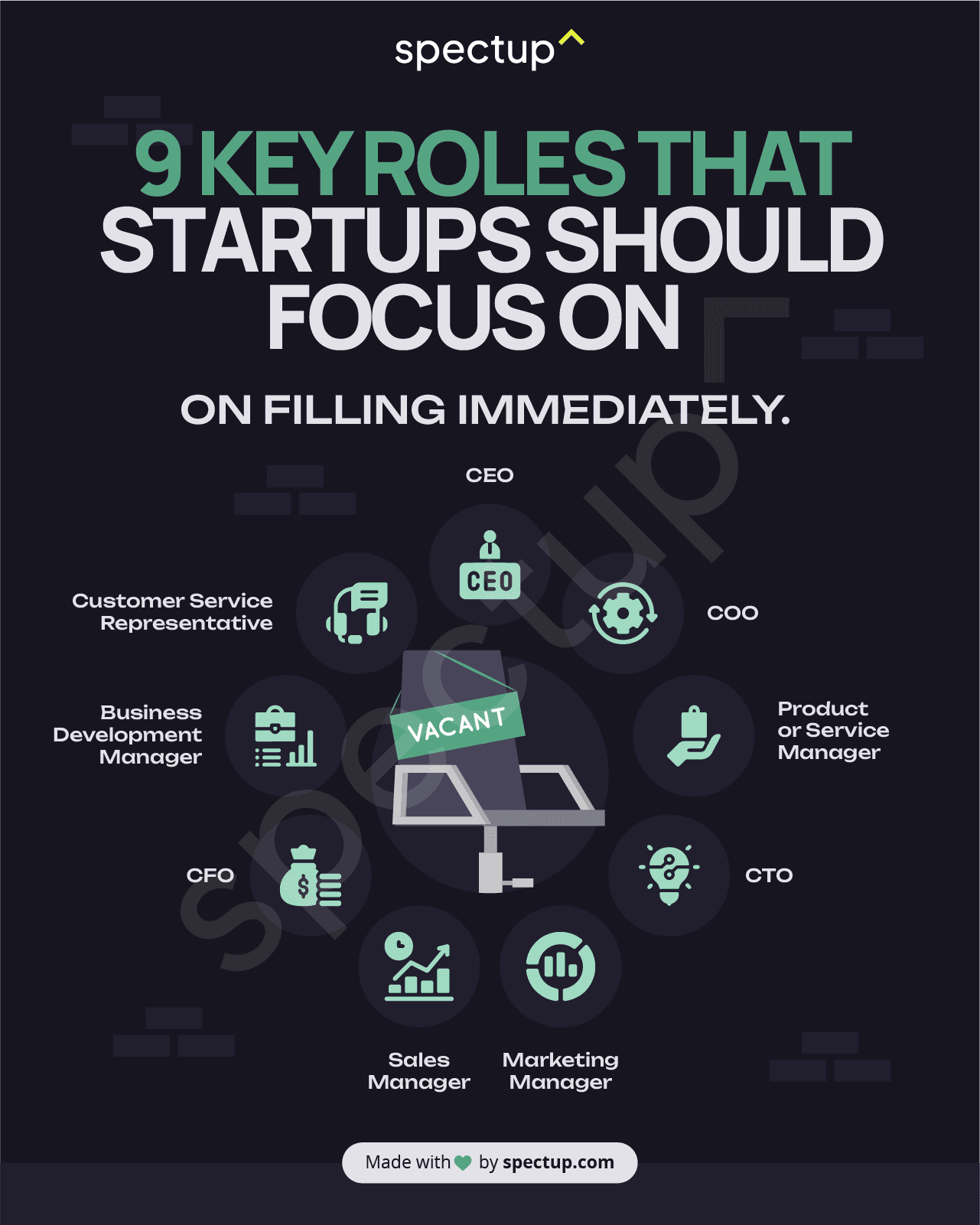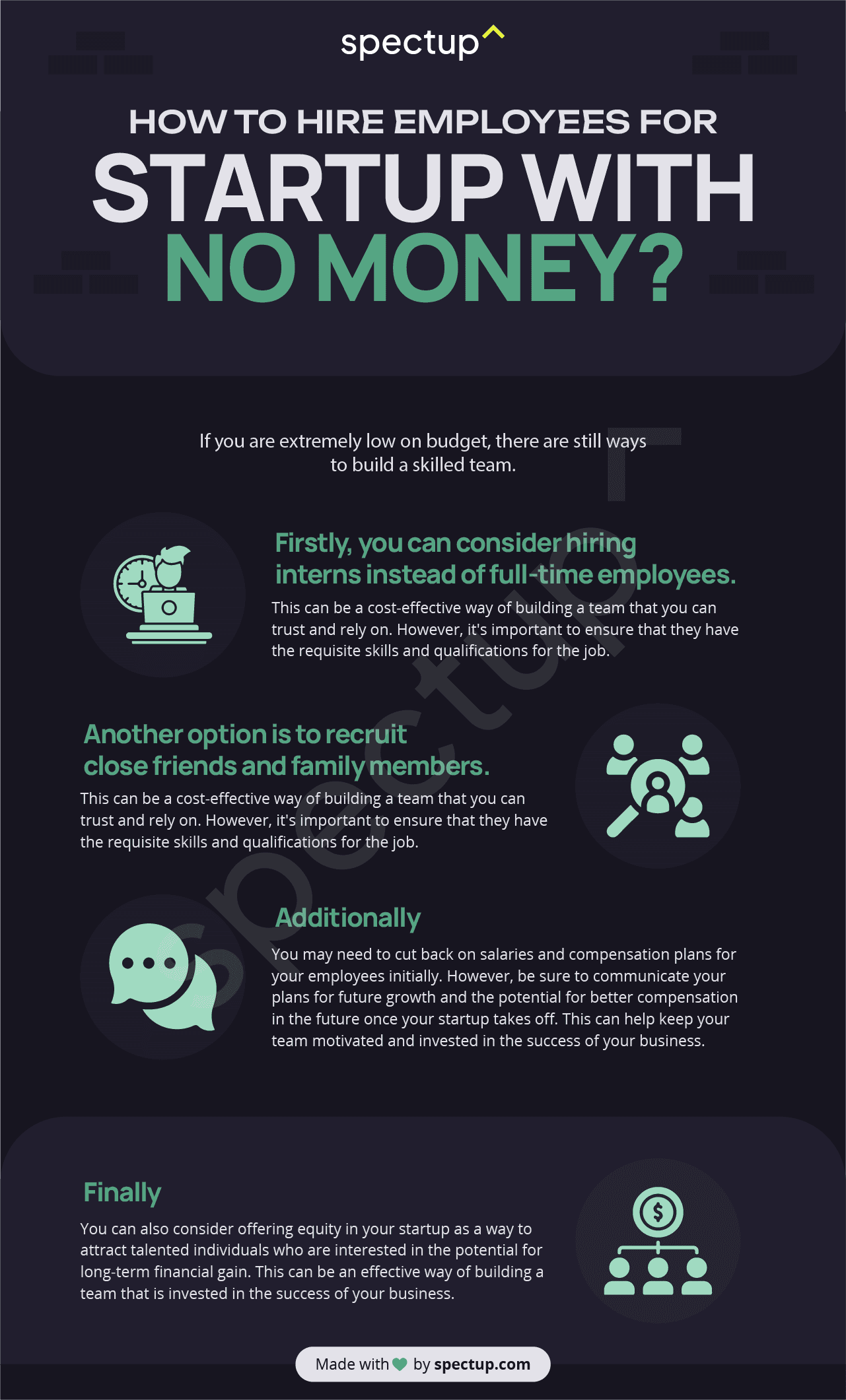Summary
Finding and hiring skilled workers is one of the most challenging parts of starting a new business. You need extra pairs of hands to help take your business off the ground and achieve your organizational goals.
As a budding business owner, you should aim to bring in motivated, engaged, and skilled workers. Such workers are better equipped to handle their job responsibilities effectively and contribute innovative ideas for the startup to grow. The hiring process will help your startup attract such employees but it has to be done right. So, the question is, how to hire employees for a startup?

How To Hire Employees For Startup?
Starting a new business can be overwhelming, but with the right team, it can be a rewarding experience. The hiring process, undoubtedly, is one of the most critical parts of setting up a new business. A startup business requires the right mix of skills, experience, and creativity to get off the ground. If you are unsure where to start, you can consider seeking guidance from a startup consulting agency. Follow the nine tips we have discussed below!
Create A Hiring Plan
The very first step is to create an employee hiring plan. Identify the skill gaps and human capital needs that your organization has. You should also discuss the hiring process with your department heads and internal stakeholders; it's good to have everyone on the same page. They can also help you identify the position that needs hiring and the exact skillset you should seek in candidates. It's essential to know what you are looking for in an employee. Outline the skills, experience, and education required for the position. This includes hard and soft skills, relevant experience, and educational qualifications. Be specific about the job role and responsibilities in order to attract the right candidates.
Set a Recruitment Budget
You cannot expect your hiring plan to proceed unless you have enough funds to carry it out. Meet with your team and figure out how much it will cost to bring in new workers.
There are plenty of costs to consider. In particular, look out for job advertising costs, recruiter salaries, recruitment agency fees, and employee assessment costs. Getting a rough estimate of each can give you a budget to work with.
Define Which Type Of Employee You Want To Hire
How to hire employees for a startup, what key skills or traits should you look for? The type of employee you hire will ultimately depend on your business type and the available position. You can’t just settle for employees with stunning resumes; you must look for flexible, passionate, self-driven, and motivated candidates. These are the employees who will go the extra mile for your startup. Seek candidates that carry the potential to make an impact on your business. Of course, since startups have limited resources, they must be highly selective with the candidate they hire.
Create an Attractive Job Description
To attract the right fit for your job opening, make sure you have an attractive job description to share. For one, your job description and graphics should reflect your brand personality. Then make sure your job description is clear, concise and defines the exact expected roles and responsibilities. You should also dedicate a short section to introduce your startup, vision, and goals.
Remember, this is the chance to make a promising first impression, so allow enough time to create an attractive job description. If you need help crafting a compelling job description, consider consulting with a pitch trainer who can help you communicate your organization's vision and goals effectively.
Source Your Candidates
The next step will have you actively searching out candidates. There are many resources to explore; the most popular places to share your job opening post include LinkedIn, Indeed, and Glassdoor, along with other job posting sites.
According to LinkedIn, 70% of the global workforce comprises passive talent. These are skilled individuals who aren't actively looking for jobs but are open to new job opportunities. You will have to create strategies to reach out to such individuals firsthand or through a recruitment agency.
Sometimes you can even find candidates close by. Be sure to ask around for referrals from your friends and colleagues. You can also use a specific recruitment agency to help find qualified candidates, but you will need to set aside a portion of your budget to pay for their services.
Screen Candidates To Hire For Your Startup
Screening candidates will allow you to find the most promising list of applicants from the pool of applicants you receive. There are several steps you can take during the screening process. The very first starts with resume and cover letter reviews and can continue with phone interviews, video interviews, skill assessments, or other tests.
Most startups will use at least 3-4 steps in their screening process to ensure they find the best fit possible.
Handle Interviews Effectively
Next, set a frame for your interview process. The interview process, if well-defined, should allow you to determine if the applicant's skills, experiences, and personality fit the job requirements. During the interview, allow the candidate to introduce themselves, and ask them about their experience and education, what skills they can bring to the company, their strengths/weaknesses, and so on.
You can also give them certain problems or situations and have them offer their proposed solution to each. Also, be sure to allow them time to ask you questions as well.
Expect to Compensate Your Employees Well
Before you can proceed with hiring, you need to figure out if you can afford to pay the people you hire. If you want skilled employees to work with your organization, you should expect to compensate them accordingly. Highly skilled and experienced employees will always want to work in well-paying positions. You don’t want to skimp on salary and compensation, or you may end up hiring the wrong fit for your startup.
Remember, startups are already low on funds and the price of hiring the wrong person is not worth the trouble. The cost of hiring the wrong person is much higher than hiring the right person.
Never Rush the Hiring Process
Regardless of the urgency, you should never rush the hiring process. If you don't take the time to bring in enough potential candidates and instead select from the first few applicants, you may end up with a poor hire and miss out on highly skilled applicants. Research shows that nearly 56% of employees tend to settle for poor hires because of rushing the hiring process.
Hire for cultural fit
Make sure that your new hires align with your company's values and culture. Look for candidates who share your company's mission and vision. Consider using behavioral interview questions to assess cultural fit during the hiring process.
Remember that the hiring process is an ongoing effort. It's important to continuously evaluate and refine your hiring strategies as your business grows and evolves. By following these tips, you can build a strong team that will help your startup succeed.
By following these tips, you can build a team that will help your startup succeed. Remember, hiring is an ongoing process, and you may need to adjust your approach as your business grows and evolves. Additionally, conducting market research for startups can also be helpful in identifying the right candidates for your team and understanding the needs of your target audience.
Where Can I Find Employees For My Startup?
Here are 10 platforms you can use to find employees for your startup:

LinkedIn - LinkedIn is a professional networking platform where you can connect with potential candidates, post job openings, and search for candidates based on their skills and experience.
Indeed - Indeed is a job search engine that allows you to post job openings and search for candidates based on their skills and experience.
Glassdoor - Glassdoor is a job search engine that also provides company reviews and salary information to job seekers. You can post job openings and search for candidates on the platform.
AngelList - AngelList is a platform that connects startups with potential employees, investors, and advisors. You can post job openings and search for candidates based on their skills and experience.
Hired - Hired is a platform that connects employers with tech talent. You can post job openings and search for candidates based on their skills and experience.
Monster - Monster is a job search engine that allows you to post job openings and search for candidates based on their skills and experience.
SimplyHired - SimplyHired is a job search engine that allows you to post job openings and search for candidates based on their skills and experience.
ZipRecruiter - ZipRecruiter is a job search engine that allows you to post job openings and search for candidates based on their skills and experience.
FlexJobs - FlexJobs is a job search engine that specializes in remote and flexible job opportunities. You can post job openings and search for candidates based on their skills and experience.
Upwork - Upwork is a platform that connects businesses with freelancers and independent professionals. You can post job openings and search for candidates based on their skills and experience.
How Many Employees Should A Startup Have?
When it comes to determining the number of employees that a startup should have, there are a few factors to consider. One of the main factors is the type of services that the startup offers. For example, a startup that provides a digital product may not require as many employees as a startup that provides a physical product. Additionally, the target market of the startup is another important factor to consider. If the startup is targeting a large market, it may require more employees to meet the demands of the customers.

In general, there are 8 key roles that startups should focus on filling immediately. These roles include the CEO, COO, product or service manager, CTO, marketing manager, sales manager, CFO, business development manager, and customer service representative. Each of these roles is critical to the success of the startup and should be filled by experienced individuals who have a strong understanding of the industry.
It's important to note that while these 8 roles are critical, there are other roles that may need to be filled depending on the needs of the startup. For example, if the startup requires a significant amount of technical expertise, it may need to hire additional developers or engineers. Similarly, if the startup is focused on research and development, it may need to hire a team of scientists or researchers.
Ultimately, the number of employees that a startup should have will depend on a variety of factors. However, by focusing on filling the key roles mentioned above and hiring additional employees as needed, startups can set themselves up for success and achieve their goals.
How to Hire Employees for Startup with No Money?
If you are extremely low on budget, there are still ways to build a skilled team.
Firstly, you can consider hiring interns instead of full-time employees. It's a great way to get fresh talent and a different perspective. Furthermore, you can mentor and train them to become valuable members of your team. If you wanna learn more about interns in startups, take a look at How To Find Interns For Your Startup.
Another option is to recruit close friends and family members. This can be a cost-effective way of building a team that you can trust and rely on. However, it's important to ensure that they have the requisite skills and qualifications for the job.
Additionally, you may need to cut back on salaries and compensation plans for your employees initially. However, be sure to communicate your plans for future growth and the potential for better compensation in the future once your startup takes off. This can help keep your team motivated and invested in the success of your business.
Finally, you can also consider offering equity in your startup as a way to attract talented individuals who are interested in the potential for long-term financial gain. This can be an effective way of building a team that is invested in the success of your business.

Conclusion
Hiring the right employees for a startup is a critical step towards success. By creating a hiring plan, defining the type of employees you want to hire, screening candidates effectively, handling interviews properly, compensating employees well, and never rushing the hiring process, you can build a strong team that will help your startup thrive. Additionally, hiring for cultural fit and continuously refining your hiring strategies can help ensure that your team is aligned with your company's values and mission. With these tips in mind, startups can overcome the challenge of finding and hiring skilled workers and achieve their organizational goals.
Niclas Schlopsna
Partner
Ex-banker, drove scale at N26, launched new ventures at Deloitte, and built from scratch across three startup ecosystems.







